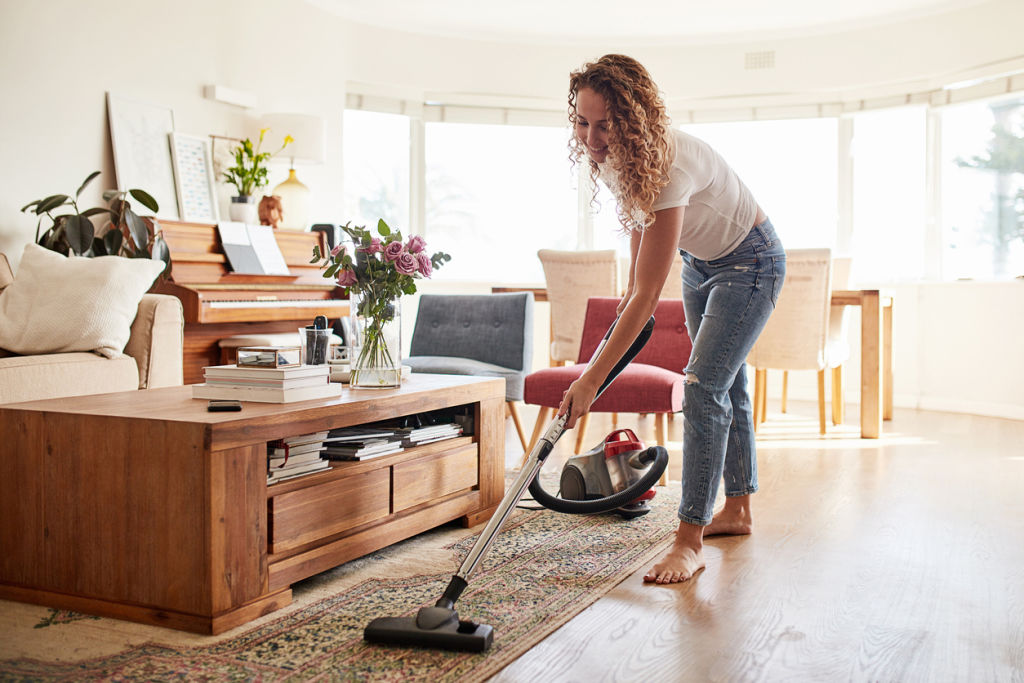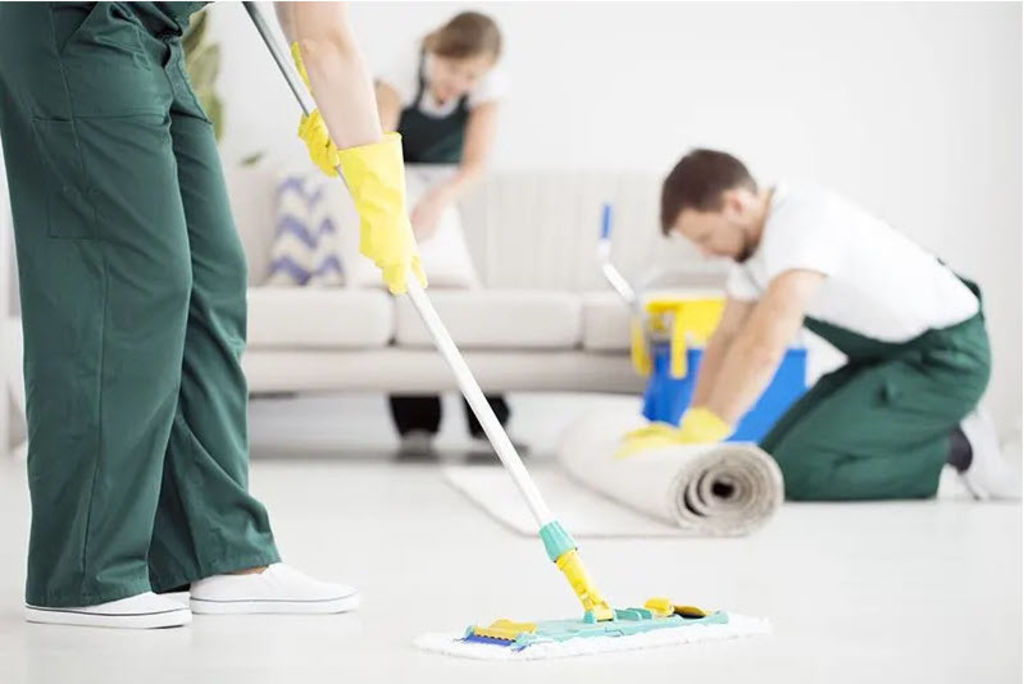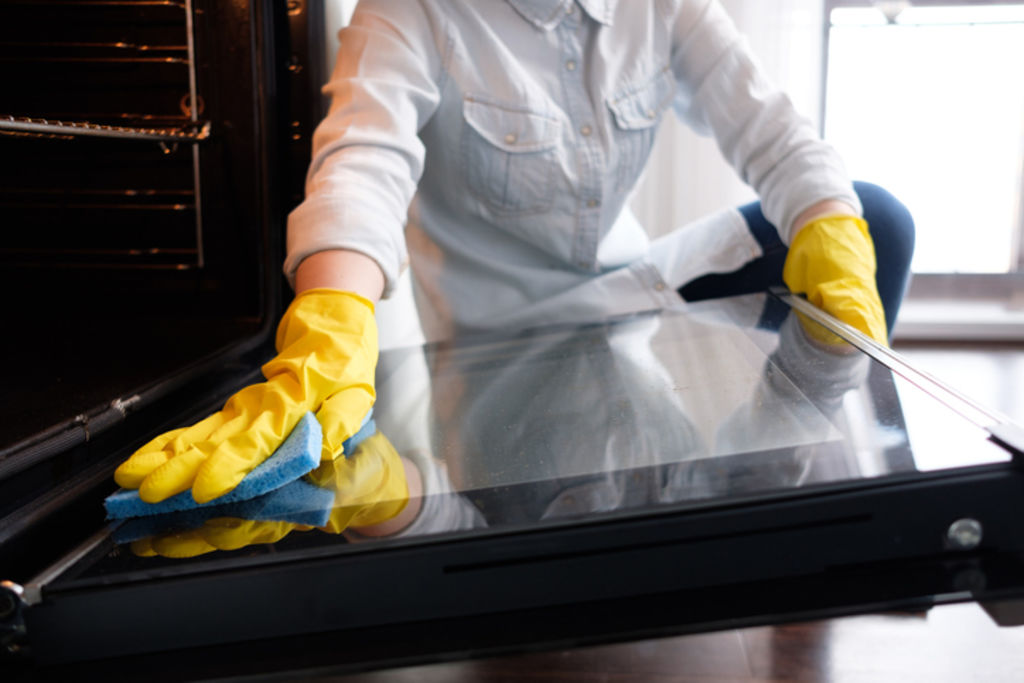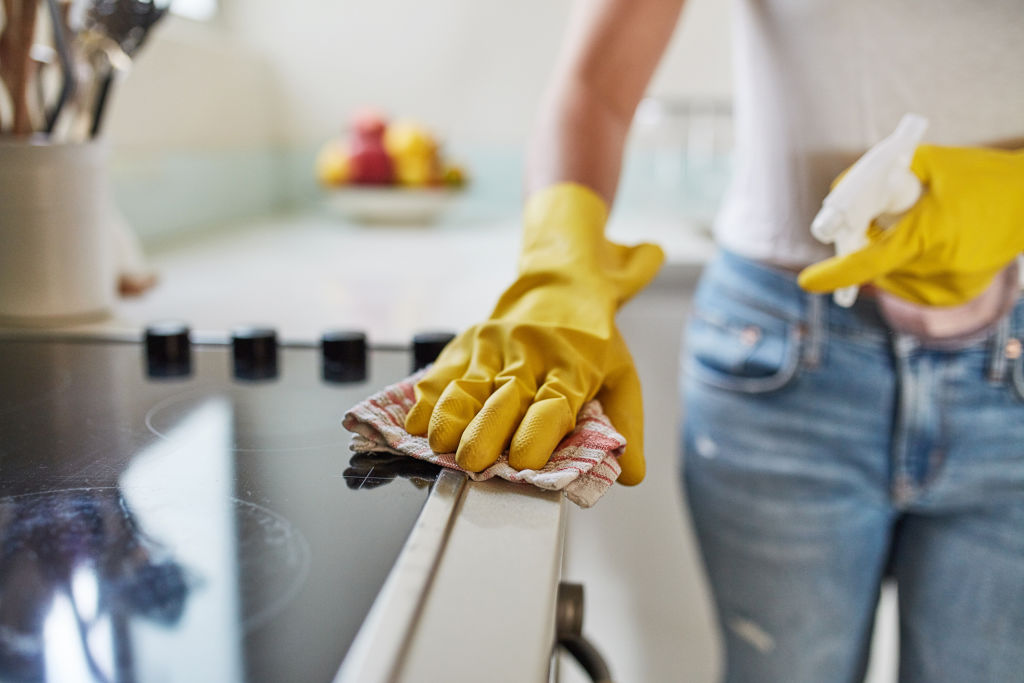End of lease cleaning: DIY or professional services – what you need to know
The time has come to move out of your rental, and that means someone has to crack out the mop and bucket. But is it worth tackling the end-of-lease clean yourself, or should you bring in a professional?
When you’re faced with the decision of how to handle end-of-lease cleaning, the stakes can be high. In this article, we’ll explore the pros and cons of DIY cleaning versus hiring professional services, all while navigating the intricate world of Australian rental regulations.
The significance of end-of-lease cleaning
The impact of end-of-lease cleaning on bond claims
In New South Wales, understanding the significance of end-of-lease cleaning is crucial. The Department of Fair Trading doesn’t maintain specific data on the reasons behind rental bond claims. However, in the event of a bond dispute, or if the bond is claimed without mutual consent, the money is temporarily held by the Rental Bonds for a duration of 14 days. During this period, both the landlord and tenant have the opportunity to initiate a claim with the NSW Civil and Administrative Tribunal.
Leo Patterson Ross, a senior policy officer at the Tenants Union of NSW, highlights a common issue: many bond claims lodged by real estate agents do not hold up in the rental tribunal. This often occurs when what the agency or landlord demands from tenants exceeds what is legally required.
Tenants, concerned about potential damage to their rental references, sometimes opt to bear the cost and accept a partial bond claim outside the official bond return process rather than challenging an unsatisfactory verdict.
Patterson Ross sheds light on this practice, saying, “It’s quite an easy way to get small sums of money with minimal evidence. Most of the time, when tenants take the matter to the tribunal, they succeed in reclaiming their entire bond.”

How clean is clean, anyway?
Ben Benny, from Property North Agency in Sydney, recommends tenants hire professional cleaners for more consistent results, as the definition of “clean” often varied.
“Everyone’s standards of cleanliness are different,” he said. “Getting a professional cleaner, while they think it is expensive, it’s a lot cheaper than doing it twice.”
David Chung, from Jellis Craig Inner North Property Management in Melbourne, says his agency recommends specific cleaners, and he prefers tenants use a professional service, as a DIY approach isn’t always as effective.
“Sometimes it’s just not up to standard, and we have to get them back to clean again,” he explains.
Your rights and obligations
Why leaving your rental property in good condition matters
Properly cleaning your rental before moving out is not just about getting your bond back; it’s also about maintaining a positive rental history.
When you leave your rental property in good condition, you’re more likely to receive positive references, making it easier to secure future rentals.
Landlords appreciate tenants who respect and care for their properties, and this can lead to smoother transitions between rentals.

Do you have to use the recommended cleaner?
According to Fair Trading NSW, tenants are required to leave the property in the same condition it was in when they started the tenancy, including its cleanliness. However, tenants are not obliged to use the cleaning service recommended by their property manager or landlord.
Patterson Ross suggests that if a landlord insists on a pristine condition, it’s in their interest to cover the cleaning costs rather than passing them on to the tenant. Tenants should only be responsible for returning the property in a reasonable condition, allowing for fair wear and tear.
Similar rules apply in Victoria, where properties must be left in a “reasonably clean condition.” Disputes can often arise regarding the condition of the property and end-of-lease cleaning.
Jennifer Beveridge, chief executive of Tenants Victoria, advises renters to maintain their homes in reasonably clean condition and highlights the importance of completing a thorough condition report when moving in and out to have evidence in case of disputes.
What usually gets missed in an end-of-lease clean?
While you might remember the basics, several details can escape your attention, potentially affecting the return of your bond. It’s crucial to pay attention to these often-neglected spots:
- Window frames and handles: Window frames and handles can accumulate dust and grime over time. Don’t forget to give them a thorough clean.
- Blinds: Many tenants forget to clean their blinds, especially fabric ones. Ensure they receive the attention they deserve.
- Baseboards, air vents, and ceiling fans: These are often tricky to reach, but they can collect dust and dirt. A comprehensive cleaning should include these areas.
- Door knobs and handles: Frequently touched surfaces like door knobs and handles can become breeding grounds for germs. Disinfecting them is essential.
- Light switches: Light switches are another high touch area often forgotten. Make sure to wipe them down.
- Oven cleaning: Ovens can accumulate grease and grime over time. It’s best to address spills promptly to prevent stubborn stains.
- Top of kitchen cupboards: The upper surfaces of kitchen cupboards can accumulate dust and grease. Pay attention to these areas during your cleaning.
Tip: Allowing time between the final inspection and handing back the keys is advisable. In many cases, the next tenants move in shortly afterwards.

Is it worth using a professional end of lease cleaner?
Patterson Ross says some tenants choose professional services for end-of-lease cleaning due to time constraints. However, it’s crucial to note that this choice should be driven by your specific circumstances rather than external pressure.
“The one advantage of using their nominated cleaner is that you can more easily say, ‘if they did a bad job, that’s your fault,'” Patterson Ross emphasises. But, ultimately, the contractual relationship is between you and the cleaner, and if there’s an issue, you have to call them back.
Professional cleaners also usually have public liability insurance, covering any damages during the cleaning process. Many cleaning companies offering end-of-lease services provide a “bond back guarantee,” assuring that they’ll return for free if the agency is unhappy with the results.
Pros and cons of DIY end-of-lease cleaning
These are some of the pros and cons of DIY end-of-lease cleaning to give you a comprehensive understanding of this option.
Pros of DIY end-of-lease cleaning:
- Cost savings: One of the most significant advantages of DIY cleaning is cost savings. You won’t incur the cost of professional services, which can vary based on the size of your property.
- Personalisation: When you clean yourself, you have complete control over the methods and products you use. You can tailor your cleaning to address your specific concerns.
- Attention to detail: DIY cleaning allows you to pay attention to the areas that matter most to you. You can take the time needed to achieve your desired level of cleanliness.
Cons of DIY end-of-lease cleaning:
- Time consuming: DIY cleaning can be time-consuming, and it might not be suitable for those with busy schedules.
- Cost of supplies: While it’s cost-effective in terms of labour, you’ll need to invest in cleaning supplies, which can add up.
- Lack of professional expertise: DIY cleaning might not match the expertise of professional cleaners, potentially leading to a less thorough result.
- Potential disputes: If the property manager or landlord is unsatisfied with your cleaning, disputes can arise, potentially delaying the return of your bond.
- Reliance on others: If you rely on friends or family to assist with cleaning, their availability and commitment can affect the quality of the clean.
Ultimately, the choice between DIY and professional end-of-lease cleaning depends on your circumstances, priorities, and budget. Take the time to evaluate your situation and decide which approach aligns with your needs.

DIY end of lease clean checklist
For those who opt for DIY end-of-lease cleaning, having a checklist is essential. It ensures you don’t overlook critical areas and provides a structured approach to the cleaning process. At a glance, here’s a DIY cleaning checklist:
General Areas:
- Dust all surfaces, including skirting boards.
Clean and disinfect light switches, power points, and door handles.
Vacuum and mop all floors.
Wipe down windowsills and clean windows, inside and out.
Remove any cobwebs from corners and ceilings.
Clean air vents and ceiling fans.
Ensure all curtains and blinds are clean.
Check and replace any blown light bulbs.
Clean any built-in furniture such as wardrobes and cabinets.
Kitchen:
- Clean and disinfect all appliances, including the oven, stove, microwave, and dishwasher.
Wipe down all surfaces, including countertops, splashbacks, and cabinets.
Clean the inside and outside of the refrigerator.
Remove any food particles from the sink and clean the taps.
Empty and clean the rubbish bin.
Bathroom:
- Clean and disinfect all bathroom fixtures, including the toilet, shower, bath, and sink.
Scrub tiles and grout.
Wipe down mirrors and clean cabinets.
Empty and clean the bathroom rubbish bin.
Bedrooms:
- Vacuum and clean all bedroom floors.
Clean built-in furniture such as wardrobes.
Ensure all bed linen is clean and neatly arranged.
Outdoor Areas (if applicable):
- Clean the balcony or patio, removing any debris.
Trim any overgrown plants or shrubs.
Sweep and mop outdoor floors.
By following this checklist to ensure a thorough clean, you can increase your chances of getting your bond back without issues.
Time to get that bond back
Ultimately, the decision between DIY end-of-lease cleaning and hiring professionals is a significant one. It’s crucial to understand your rights and obligations as a tenant under Australian rental regulations. While there may be external pressures to use recommended cleaners, the ultimate choice should be based on your specific circumstances. Ensure you maintain a reasonably clean home, document its condition meticulously, and consider expert advice for effective cleaning.
Leo Patterson Ross wisely advises, “Think about whether or not you need to spend money on this cleaning. If it’s because you don’t have the time, that is fine, but don’t do it because your agent told you to.”
By making informed decisions, you can navigate the complexities of end-of-lease cleaning while preserving your rights as a tenant and ensuring a smooth transition from your rental property.
We recommend
We thought you might like
States
Capital Cities
Capital Cities - Rentals
Popular Areas
Allhomes
More










